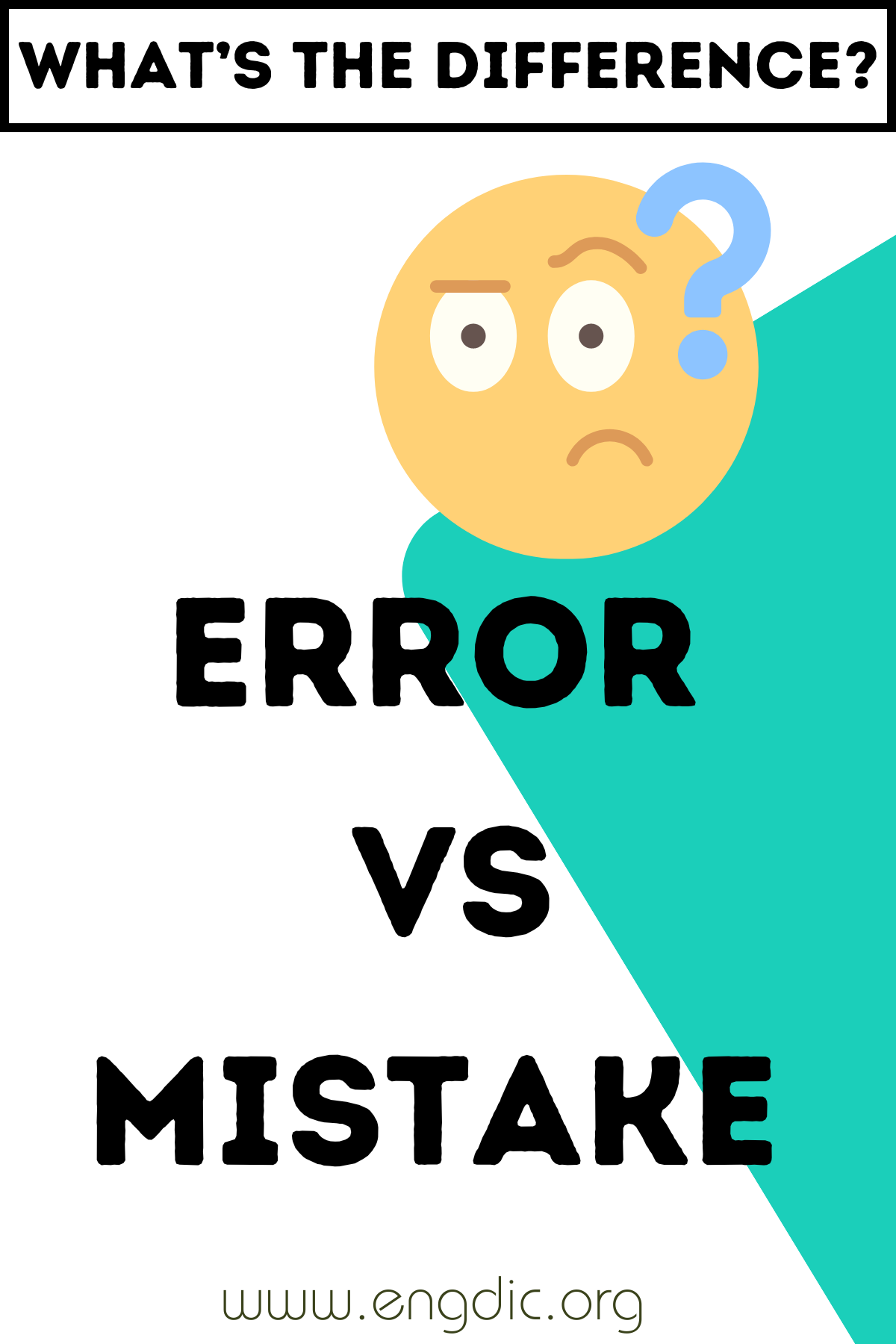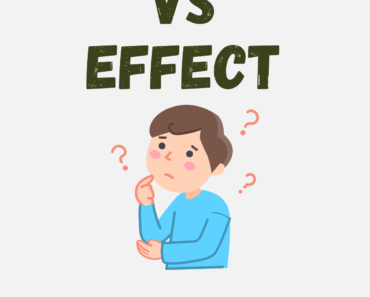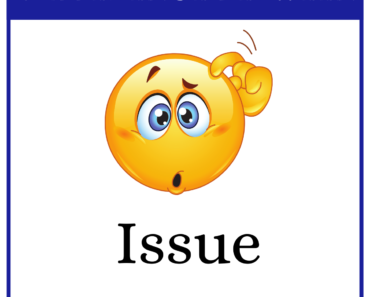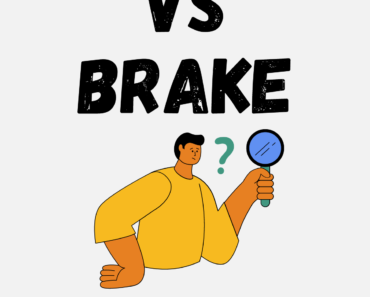An “error” often implies a deviation from a standard or an objective truth, generally attributed to misjudgment, inaccuracy, or oversight, sometimes with technical or systemic connotations.
A “mistake,” however, indicates a more personal miscalculation or misunderstanding, usually linked to subjective actions or decisions.
While errors may imply a broader concept involving systemic faults, mistakes are often more personal and situational, arising from incorrect assumptions or a lack of understanding.
Definition, Usage, and Examples
Error:
- Definition: An act or condition of being wrong in conduct or judgment.
- Usage: In technical contexts, “error” refers to discrepancies between observed and expected results, such as in scientific experiments or computing. It can also mean a systemic failure, such as an accounting error in financial records.
- Examples:
- In computing, a syntax error occurs when the code violates the programming language’s rules.
- A typographical error in the document altered its meaning significantly.
- A calibration error in the machine resulted in defective products.
Mistake:
- Definition: An action or decision that is misguided or incorrect.
- Usage: “Mistake” generally applies to decisions, interpretations, or actions that differ from what was intended, often linked to misunderstanding or incorrect assumptions.
- Examples:
- She realized her mistake after buying the wrong size.
- His mistake was to underestimate the competition.
- The team made a mistake in judgment, choosing the wrong strategy for the game.
The key difference lies in the perception of how each is made: errors often stem from systemic or technical faults, while mistakes are more personal, involving misunderstandings or incorrect assumptions.







